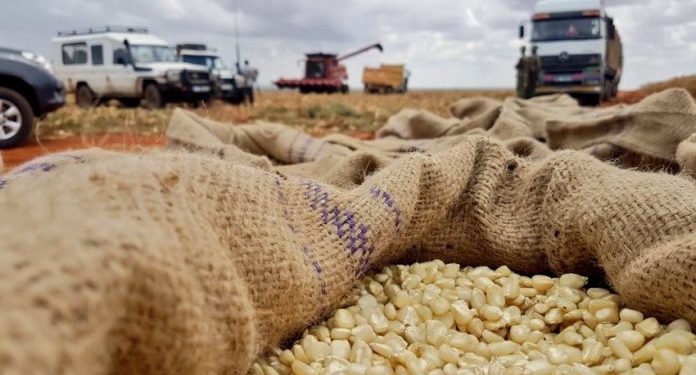A few days ago Kenya’s Agriculture and Food Authority announced a ban on the importation of maize from Uganda citing high levels of mycotoxins that are beyond safety limits.
In a letter dated 5th March 2021 addressed to Pamela Ahago, the Commissioner of Customs Kenya Revenue Authority, the Acting Director-General of Kenya’s Agriculture and Food Authority (KAFA) Kello Harsama said that they have been conducting surveillance on the safety of food exports to Kenya and that test results for maize imported from Uganda and Tanzania revealed high levels of mycotoxins.
“Mycotoxins, particularly aflatoxins and fumonisins are known to be carcinogenic. Over the years, several acute and chronic aflatoxin related illness cases have been recorded in Kenya including deaths,” Harsama noted.
Kello told Ahago that the Authority has stopped any further maize imports with immediate effect.
“The Republic of Kenya is however committed to facilitating safe trade with her trading partners and look forward to working closely with all stakeholders to address the concern.”
However, Kenya’s ban on Uganda’s maize caused a huge loss to many Ugandans who have been dealing in exporting maize to Kenya. Business reports from Kenya indicate that Kenya has been buying almost 90 percent of Uganda’s exported maize.
According to Chris Kaijuka, the chairperson of the Grain Council of Uganda, the ban will never solve the problem if the government does not formulate regulations that whoever deals in exporting maize should abide by.
He added that currently maize trading in Uganda has been dominated by informal dealings where no regulations have been respected.
“Uganda’s maize has been exported informally which is unfortunate but it’s the truth. Kenya stated that they were receiving so much maize from Uganda and Tanzania up to six-folds of what they have ever received during this kind of time. We are now in March, from January a lot of maize has been going to Kenya from Uganda…a lot on daily basis, which is okay. But it is unfortunate thing is that the maize, which has been going to Kenya, was being bought from rural areas by Kenyan traders and transported by Kenyan trucks. This process has been over 90 percent informal and that it should be a concern for Uganda,” Kaijuka said in an interview with this website.
He added that although Kenya did not provide evidence for the allegation, the complaints of mycotoxins are very serious which calls for the government’s involvement to investigate the matter.
“This could be a ploy to give Kenyan farmers a chance to sell their maize. However, if this is true, it’s a lesson for Uganda to work towards selling good quality maize to Kenya directly.”
According to the World Health Organisation, mycotoxins are naturally occurring toxins produced by molds (fungi) and can be found in food. Mycotoxins can cause a variety of adverse health effects and pose a serious health threat to both humans and livestock.
Do you have a story in your community or an opinion to share with us: Email us at editorial@watchdoguganda.com













